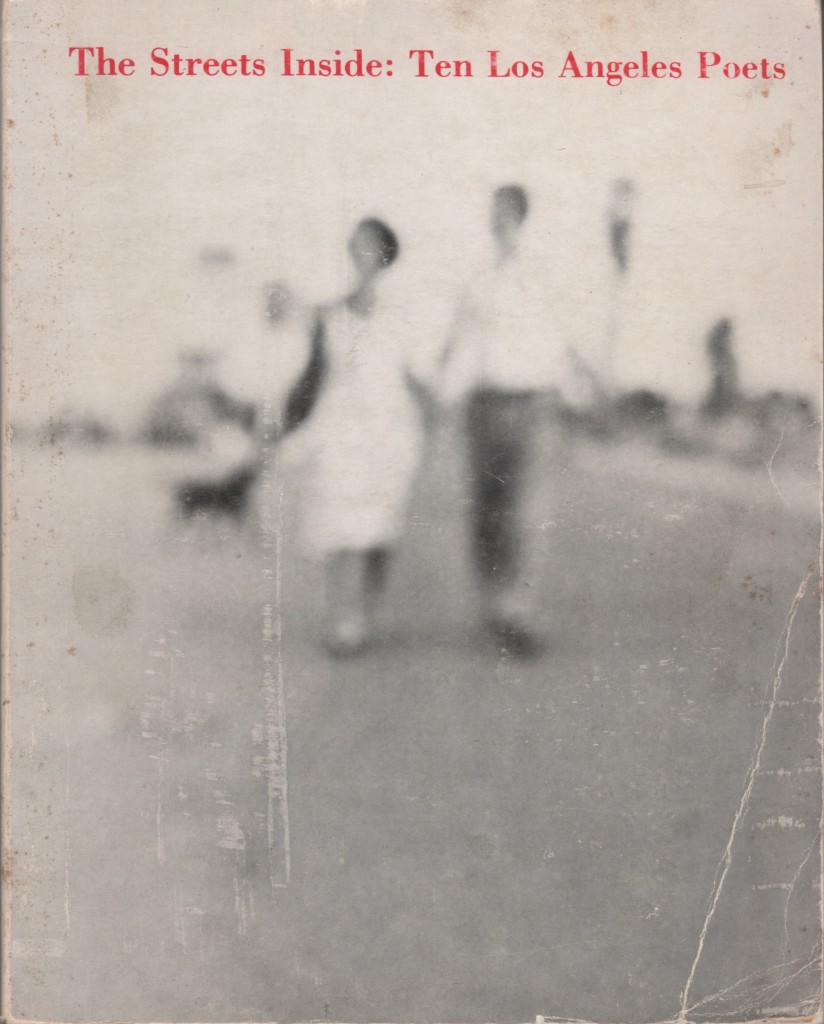Saturday, April 1, 2017
More Secret Locations
I began working on a literary history of some of the communities of poets in Los Angeles County in the mid-1990s. I had no realization whatsoever how long this account and accompanying contextual analysis would take to complete. As I worked on the initial outline, however, worrying about the publication date was a luxury I could not afford, for it was primarily a project motivated by dire circumstances. After many years of making a living as a typesetter, I was unemployed and had no likelihood of ever finding work again in that occupation. One evening, in mid-November, 1995, I spotted a flyer on a lobby counter at Beyond Baroque. The Getty Research Institute was requesting applications from scholars and cultural workers who would contribute to a year-long seminar on Los Angeles. I set to work on a proposal that I spend two months doing research on the poets in Venice West, and turned it in on the last day of the application date. In mid-Spring, I received a special delivery notice that I had received one of the visiting scholar awards. It was a radical shift in my life, in that it led to a decision to engage in graduate study at UC San Diego, starting in 1997.
The first few years that I was in grad school were impatiently devoted to doing the coursework for a Ph.D., during which time I felt encouraged by the publication of A Secret Location on the Lower East Side. It was the kind of book that emanated a lifetime of passionate involvement in the underground publication of poetry in the two decades after Donald Allen’s anthology first appeared, and it bespoke the necessity of my own project, which I saw as a spoke on the Great Wheel of this compendium by authors/archivists, Steven Clay and Rodney Phillips. At the many points at which I felt discouraged, I thought of their book as proof that Holdouts was more than individual nostalgia for what L.A. Times book critic Robert Kirsch had called the “golden age” of Los Angeles poetry.
As was the case with Holdouts, in which I had to leave out vast amounts of information, A Secret Location was merely the first major sifting of the period under examination (1960-1980). In making the entire original book available for anyone with a computer and internet access to read, Steven Clay and Rodney Phillips have performed an extraordinary act of scholarly generosity. They have taken the project further, though, and added entries for other notable magazines and small press outfits, such as Abraxas, Extensions, Luna Bisonte Prods, New American Writing, Oink, Streets and Roads, Sugar Mountain, the, Tooth of Time Review, Grist, Long News in the Short Century, Sunshine, Unmuzzled Ox, Search for Tomorrow, and Tansy.
For those who missed the post a few days back, you can also listen to David Wilk’s recently posted interview with me as a way of hearing about some of the books that are mentioned in the checklist on this very personal instance of a Secret Location.

 About Bill Mohr
About Bill Mohr